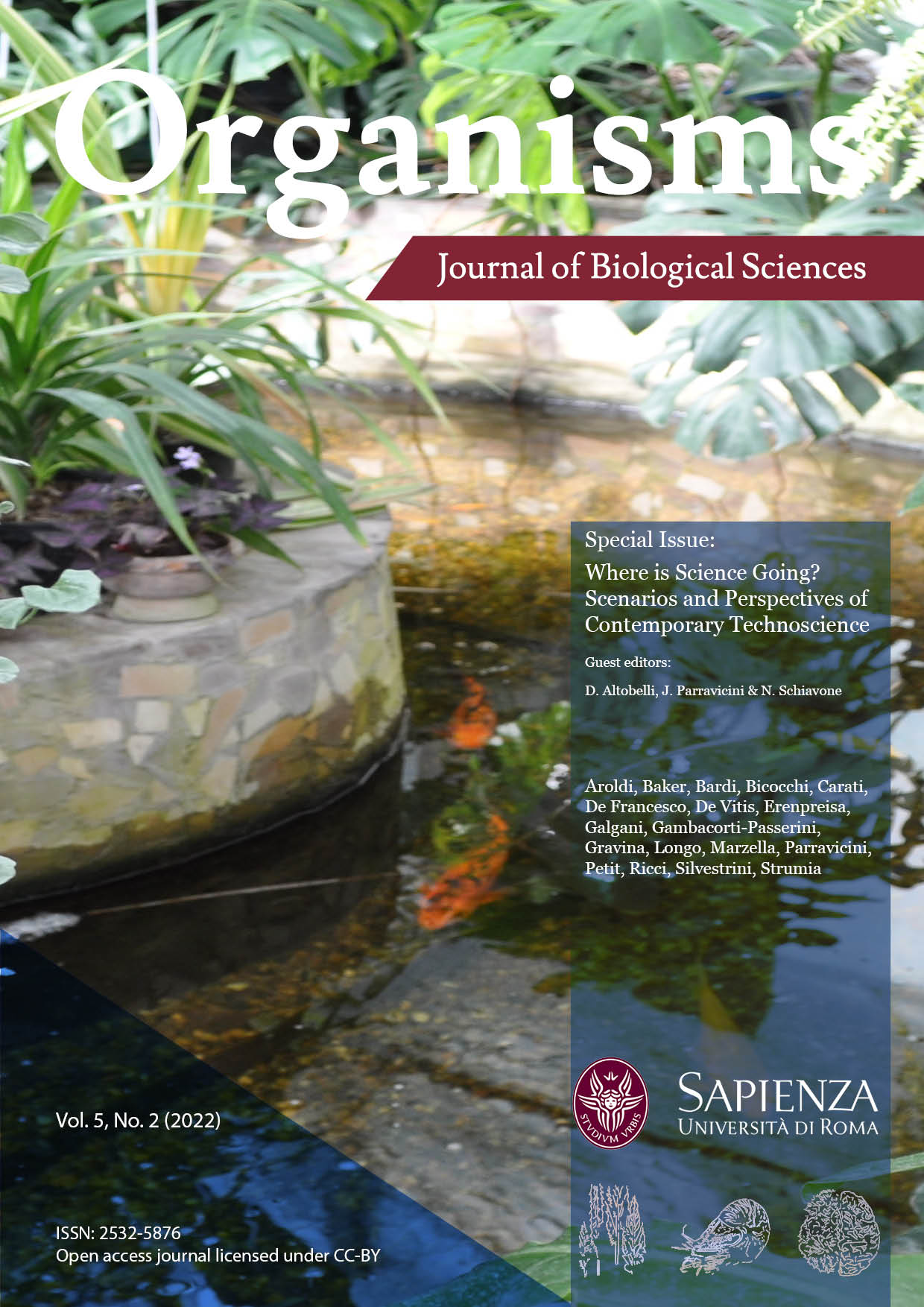Complexity: the Role of Information in Organizing Chance
DOI:
https://doi.org/10.13133/2532-5876/17651Abstract
A review on some of the more relevant results arising from the crisis of reductionism in different contexts of sciences, starting from the late XIX century until our days, leading to complexity theory and the problem of foundations is presented. Relation between complexity and mathematical non-linearity is emphasized. A mention of Chaitin’s compressibie/incompressibie strings to be compared to the philosophical notion of universal is suggested. A comparison of today’s notion of information, especially in its algorithmic version, and the Aristotelian-Thomisitc notion of form, is suggested. In particular we show, by the aid of pictures and animations, how chance can generate stable order and organization only if some information drives the dynamics of the process. Starting from random initial conditions, suitable information leads the evolution trajectories of each cell (element) of some system (either simple or complex) towards a precise attractor. Examples of fractals, galaxies and models of a biological organ in a living system, like a human heart, generated by stem cells are proposed. Ancient Aristotelian-Thomistic logic/ontology appears to be more close to contemporary science than in the past centuries; a result which may contribute constructively even to philosophy, beside science.
Downloads
Published
How to Cite
Issue
Section
License
Copyright (c) 2022 Alberto Strumia

This work is licensed under a Creative Commons Attribution 3.0 Unported License.
Copyright Agreement with Authors
Before publication, after the acceptance of the manuscript, authors have to sign a Publication Agreement with Organisms. The authors retain all rights to the original work without any restrictions.
License for Published Contents

You are free to copy, distribute and transmit the work, and to adapt the work. You must attribute the work in the manner specified by the author or licensor (but not in any way that suggests that they endorse you or your use of the work).





